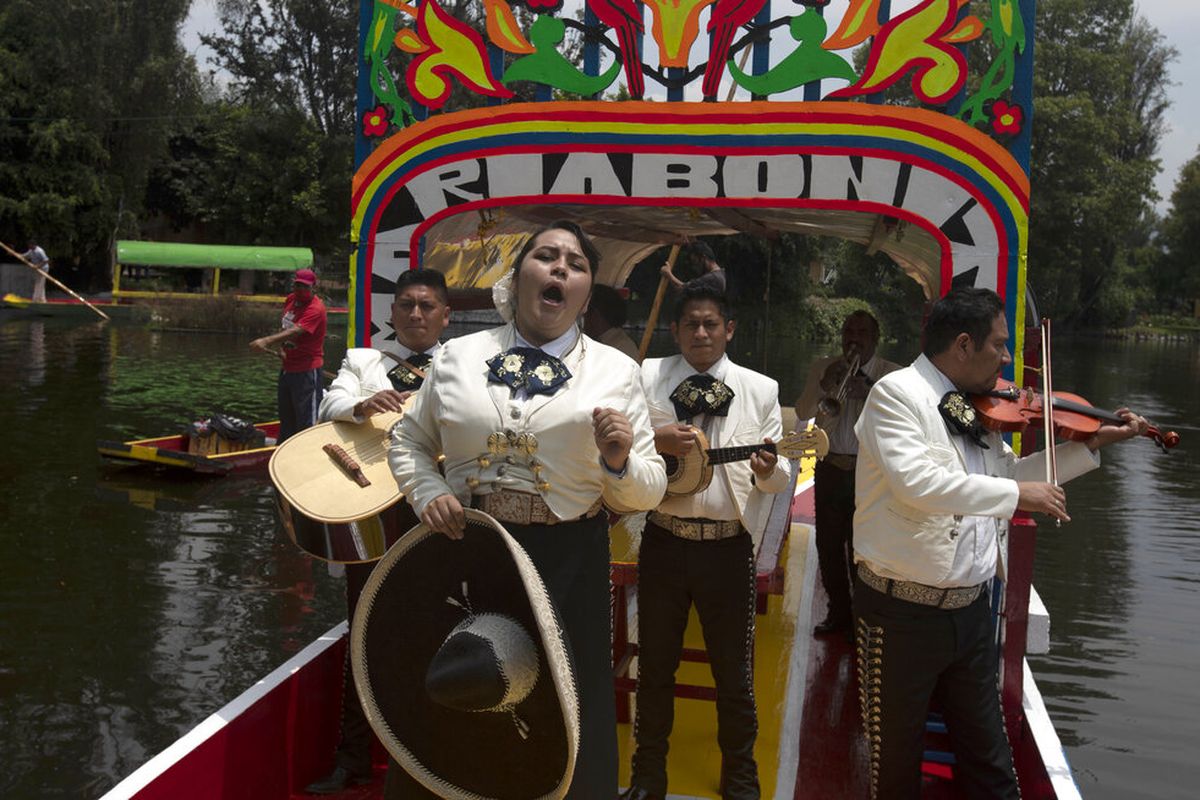Mexico’s Floating Gardens of Xochimilco Reopen to Tourists

MEXICO CITY, KOMPAS.com - After five months under coronavirus lockdowns, Mexico’s floating gardens of Xochimilco have reopened to visitors on Friday.
The canals that run through man-made islands created by the Aztecs on the southern side of Mexico City provide popular day trips for tourists.
Flat-bottom boats plying the water and mariachis playing music are part of the entire Xochimilco experience.
Seeking to reassure people, the borough government cleaned and disinfected the flower-decked boats and docks, and enforced special hygiene rules, but there were few tourists or revelers for the reopening.
Read also: Bali Among Trip Advisors Top Destinations
That contrasts with the crowds in a good year, like 2015, when about 2 million people visited the floating gardens.
The tourism industry in Mexico accounts for 8.7 percent of the country's gross domestic product, and has been left gasping by the pandemic as both domestic and foreign tourists stay home.
Mexico City, which has nearly 90,000 confirmed coronavirus cases and about 10,000 deaths, is still on the second-highest form of alert.
Tourism has long been particularly important for Xochimilco, where borough officials have long struggled to defend the islands, known as chinampas, from encroaching development.
Read also: Indonesia Sails Ahead to Restore Tourism Sectors Pre-Covid-19 Glory
People build houses on the unstable islands, which were created by the Aztecs by laying down woven reed mats, covering them with dirt and planting trees or other plants to root the floating islands to the bottom of the shallow lake.
As he poled his boat, known as a trajinera, through the waterways with a long barge pole, one boatman noted ruefully that even once people feel reassured about Xochimilco health precautions, many Mexico City residents may no longer have the money to do visit because of the pandemic's economic blow.
The borough government sent squads of workers in protective suits through the boats, docks and surrounding markets early Friday to spray disinfectant.
Boat personnel are required to wear face masks and face shields, and to limit crowd size. There is a ban on the traditional practice of tying up two boats so passengers can party in larger groups.
Read also: National Dutch Government Says No, Amsterdam Says Yes to Face Masks


































